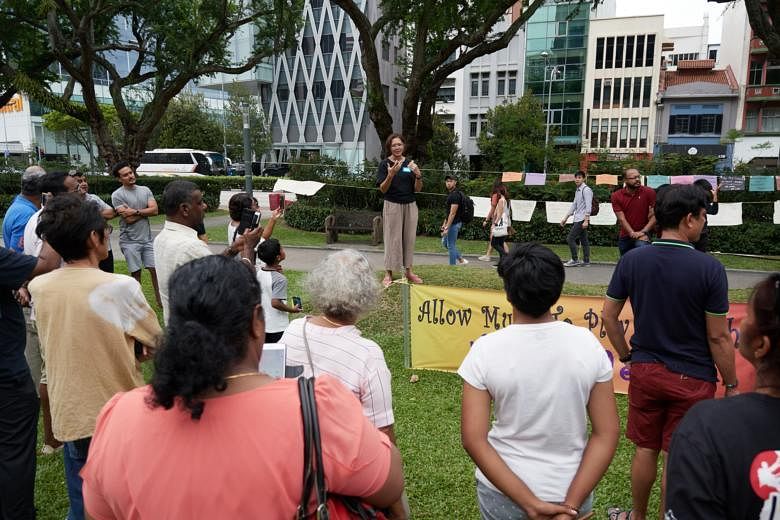A law enacted in 1958 to provide special powers to deal with large-scale communal riots has never been used against public assemblies and there is no intention to use an updated version of the law to regulate peaceful public assemblies.
The Ministry of Home Affairs (MHA) said yesterday that the Public Order and Safety (Special Powers) Bill is "not meant for day-to-day policing".
The difference between the existing Act and the Bill is "new provisions which would allow us to better deal with today's prevailing terror threat", it added.
This was in response to concerns raised in a joint statement on Wednesday by several local civil society groups, claiming that provisions in the Bill could lead to an abuse of power by the police and oppression against peaceful protesters.
In the Bill, which was tabled in Parliament on Feb 27, serious incidents are described as terrorist acts, serious violence affecting the public, and acts causing large-scale public disorder.
In their statement, the groups called on the Government to narrow the definition of "serious incident", arguing that peaceful protests should not be treated in the same way as terrorist violence, describing such protests as non-violent and not threatening public safety.
But the MHA said it is disingenuous to assert that large-scale assemblies are devoid of violence and injuries. "In the 2011 London riots, at least 202 people, including police officers, were injured, and five people died, after what started off as a peaceful assembly," said the ministry.
The civil society groups said that with existing strict laws against assembly, the police are already empowered to respond to peaceful protests "as they would any prohibited activity, and have done so", and that special powers are not needed.
The MHA said the threshold for special powers to be activated in the Bill is high and can be used by the police only after the Minister for Home Affairs has issued an activation order. This can be done only after the minister is satisfied that a serious incident has occurred or is occurring in Singapore.
The order, which can also be issued when there is a threat of such a serious incident occurring, gives special powers to the police to prevent the incident, reduce its impact, or control, restore or maintain public order.
"Such assessments are not made lightly," said the MHA.
The proposed law would give the Commissioner of Police power to issue a communications stop order (CSO) while security operations are ongoing during a serious incident. People will then have to stop filming or taking pictures of the incident area, or from sending what they have taken on to others.
The civil society groups took issue with this, saying it was puzzling as it "gives rise to fears of undocumented abuse of police powers". Should there be disputes later about police actions, "the police would benefit from independent documentation", the groups said in their statement.
The MHA reiterated that the CSO serves to prevent security operations from being compromised and to protect the safety of officers and members of the public involved or caught up in the operations.
The ministry said that those who encounter any cases of misconduct or abuse of powers by police officers can lodge a police report or complain directly to the ministry.
"We have always taken a serious view of all feedback about police officers and will investigate thoroughly," said the MHA.

